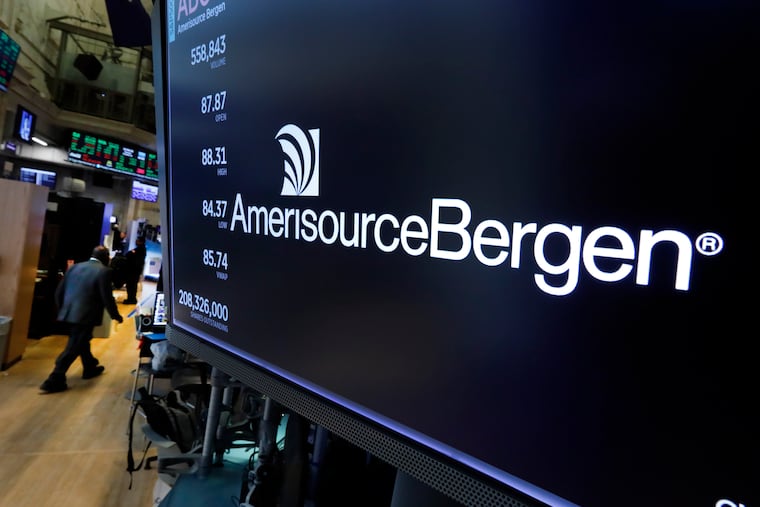Teamsters take aim at executive bonuses at drug distributor AmerisourceBergen
The Teamsters' proposal has also picked up support from two major advisory firms that make voting recommendations to investors: Institutional Shareholder Services (ISS) and Glass Lewis.

Steve Collis, CEO of a major drug distributor, was paid $11.3 million last year. Shareholders who have criticized the company’s role in the opioid supply chain would like part of his future paychecks to be delayed.
The International Brotherhood of Teamsters is a cosponsor of a “bonus deferral” shareholder proposal to be voted on at AmerisourceBergen’s annual meeting on Thursday at the Four Seasons Hotel in Philadelphia — an event that members of the labor union protested in 2017 when it was held at the Sofitel Hotel.
Since then, Chesterbrook-based AmerisourceBergen and other opioid distributors and manufacturers have come to face a mountain of lawsuits by cities, counties and state attorneys general, accusing the companies of fueling the national opioid epidemic. Most of the suits are consolidated in federal court in Cleveland. Meanwhile, a trial scheduled for later this month in New York is adding to pressure on the parties to reach a global settlement, potentially worth billions of dollars.
Investors are exposed to those costs, the Teamsters say. And they argue that a bonus deferral program is a “critical” accountability measure that would give the company’s board a longer horizon to decide whether a bonus award is warranted in a given year. The proposal has also picked up support from two major advisory firms that make voting recommendations to investors: Institutional Shareholder Services (ISS) and Glass Lewis.
“The current incentive plans not only fail to hold management accountable for costly compliance failures but create potentially risky incentives to cut corners in the first place,” the Teamsters wrote in a letter to fellow shareholders last month, co-signed by Rhode Island’s state treasurer, and the UAW Retiree Medical Benefits Trust. The Teamsters’ pension and benefit funds own shares in the company.
All three groups are members of a broader coalition called Investors for Opioid and Pharmaceutical Accountability, which has advocated for increased board oversight at drug companies, distributors and pharmacies over the last two years. The coalition began pushing the bonus deferral concept in time for this year’s proxy season. Investors agreed either not to file, or to withdraw the proposal, at companies that agreed to participate in a working group on the issue.
AmerisourceBergen opposes the measure, and says its existing executive compensation policies are focused on long-term performance
In 2019, long-term equity incentive awards made up about 72% of Collis’ total direct compensation, a spokesperson said. Such awards made up about 60% of the total average of what other executive officers were paid.
“The simple fact is that the majority of senior management compensation is heavily impacted by the long-term performance of the company and only becomes available years after it is granted,” spokesperson Lauren Esposito said in a statement.
ISS, however, told its clients that although AmerisourceBergen requires executives to hold a certain amount of equity, the advisory firm “does not consider such stock ownership guidelines to be robust.”
The firm also said it recommends in favor of the Teamsters proposal because it would still give the board “broad discretion” to decide how much compensation to defer, and for how long.
Glass Lewis said it views the proposal as giving “significant discretion” to the board, as well.
“Ultimately, we believe that shareholders would benefit from policies and procedures that serve to both disincentivize excessive risk taking and to ensure executives do not receive unjust enrichment following incidents of misconduct,” Glass Lewis said in its recommendation.
AmerisourceBergen and other companies have denied wrongdoing in the opioid lawsuits.
“We are continuing the complex process of working toward the global resolution of opioid litigation and believe our efforts have been productive,” Esposito said. “We remain committed to a fair negotiated resolution, but are ready to defend ourselves in litigation and are actively preparing for upcoming trials.”